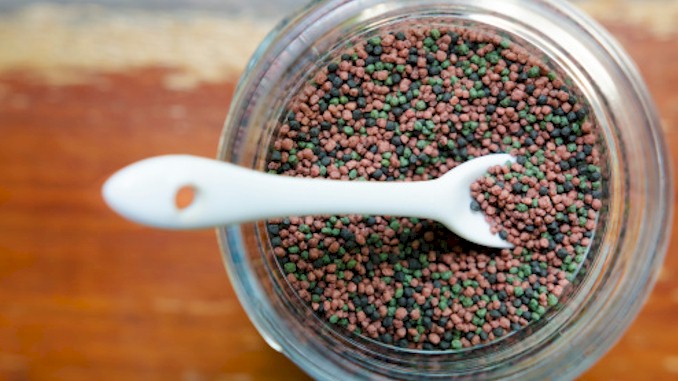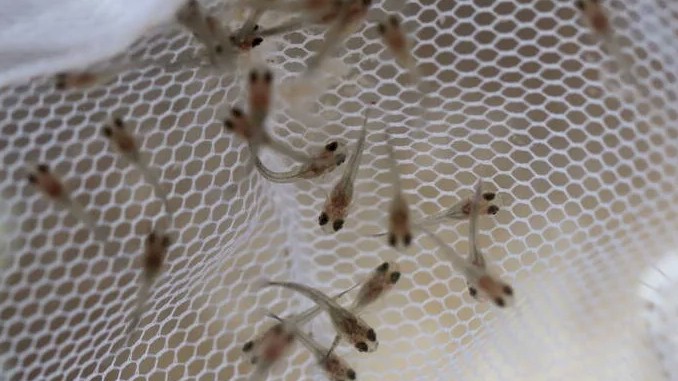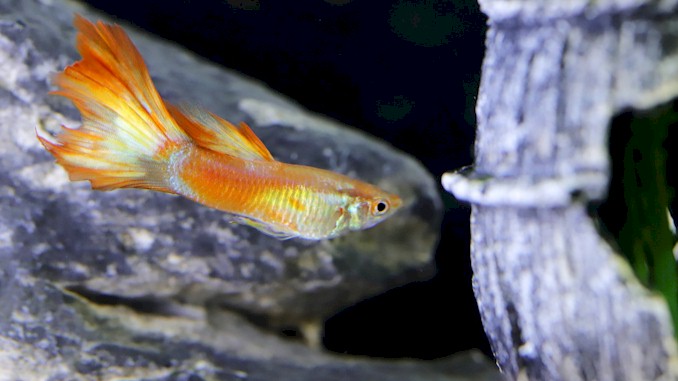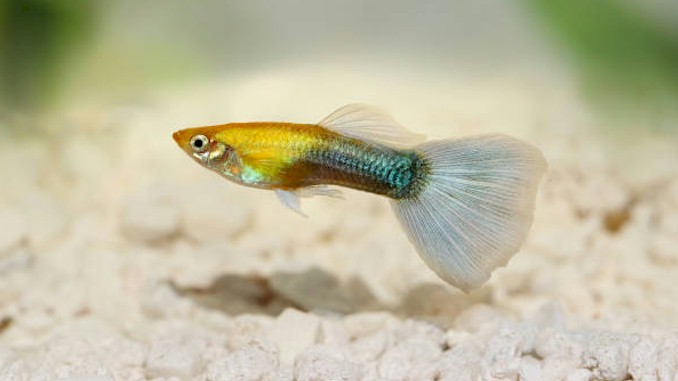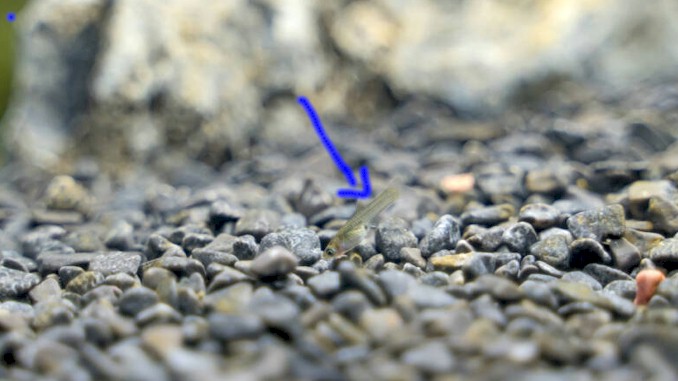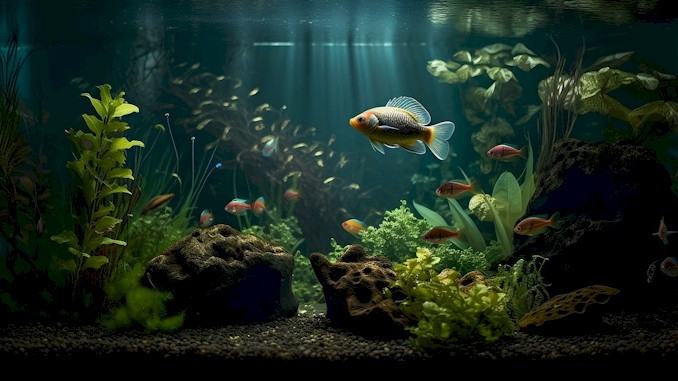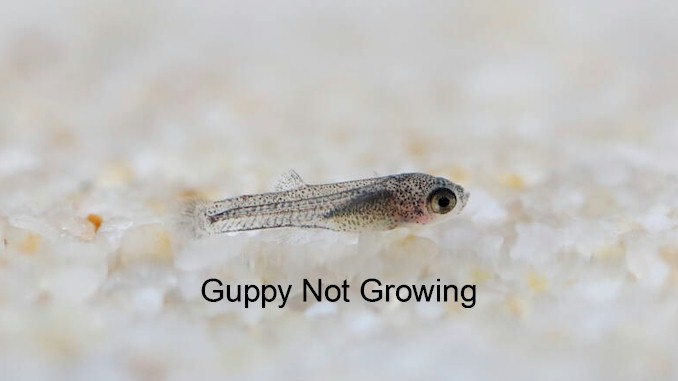Healthy Foods for Guppy Fry: Top 7 Picks
As an experienced fish enthusiast and aquarist, I understand how important it is to provide proper nutrition for our aquatic pets. And when it comes to guppy fry, finding the right diet can be crucial to their growth and overall health. After spending years researching and experimenting with different types of food, I have come up with a list of seven healthy foods that guppy fry should eat. In this blog post, I will share my knowledge and expertise on what guppy fry eat, and provide you with the tools and insights you need to ensure your guppy fry are getting the proper nutrition they need to thrive.
Guppy fry, also known as baby guppies, should primarily consume high-quality, protein-rich foods such as newly hatched brine shrimp, micro worms, and commercial fry food. They also benefit from infusoria, boiled egg yolk, and spirulina. Offering a variety of these nutritious foods can ensure that guppy fry receive the essential vitamins and minerals necessary for their growth and development.
But that’s not all! In addition to the seven healthy foods that guppy fry should eat, there are other important factors to consider when it comes to their nutrition. From understanding their feeding habits to monitoring water quality, I have a wealth of knowledge to share on how to ensure your guppy fry grow up healthy and strong. So keep reading to learn more about the best foods for guppy fry and how to provide them with the ideal diet for their needs.
Understanding the Nutritional Needs of Guppy Fry: Protein, Vitamins, and Minerals
Understanding the nutritional needs of guppy fry is essential to ensure their growth and development. Protein, vitamins, and minerals are vital components that contribute to their overall health. As baby guppies, they have a higher need for protein than adult guppies. Protein is essential for growth and repair of tissues and helps to build muscle and maintain the health of the immune system. Vitamins and minerals, on the other hand, are necessary for various metabolic processes, such as maintaining healthy bones, regulating cellular processes, and promoting proper organ function.
One crucial aspect of providing proper nutrition for guppy fry is to offer a diet that contains a high percentage of protein. In the wild, guppy fry would consume small organisms such as zooplankton and insect larvae that are rich in protein. Therefore, it’s important to offer a diet that mimics their natural diet as much as possible. Newly hatched brine shrimp, micro worms, and commercial fry food are all excellent sources of protein that can be easily consumed by guppy fry.
In addition to protein, guppy fry also require a range of vitamins and minerals to maintain optimal health. Vitamins such as A, B, C, D, and E are essential for their growth and development, and they can be obtained through a varied and nutritious diet. Minerals such as calcium, phosphorus, and magnesium are also important for maintaining healthy bones and promoting proper organ function.
It’s essential to note that the nutritional needs of guppy fry can change as they grow older. As they reach adulthood, they require less protein and more carbohydrates and fats in their diet. Therefore, it’s crucial to offer a varied and balanced diet that meets their changing needs.
In conclusion, understanding the nutritional needs of guppy fry is critical to their overall health and well-being. A diet that is high in protein, vitamins, and minerals is essential for their growth and development. By offering a varied and nutritious diet that mimics their natural diet as much as possible, you can ensure that your guppy fry grow up healthy and strong.
The Top Seven Healthy Foods for Guppy Fry: Newly Hatched Brine Shrimp, Micro Worms, and More
The top seven healthy foods for guppy fry are crucial to providing them with the essential nutrients they need for growth and development. These foods include newly hatched brine shrimp, micro worms, and commercial fry food, among others.
- Newly hatched brine shrimp: Brine shrimp is a staple food for many fish, and guppy fry are no exception. Newly hatched brine shrimp is rich in protein, easily digestible, and a great source of nutrition for guppy fry. They can be found in most pet stores or online, and the eggs can be easily hatched at home using a brine shrimp hatchery.
- Micro worms: Micro worms are another excellent source of protein for guppy fry. They are small, easy to digest, and can be found in most pet stores or online. They are also straightforward to culture at home using a culture kit.
- Commercial fry food: There are many types of commercial fry food available on the market, and they are an easy and convenient option for feeding guppy fry. Look for brands that contain high levels of protein and are specifically formulated for fry.
- Infusoria: Infusoria are tiny aquatic organisms that are rich in vitamins and minerals. They are a great source of nutrition for guppy fry, especially in the first few days of life when they are too small to consume larger foods.
- Boiled egg yolk: Boiled egg yolk is a natural source of protein and is easily digestible for guppy fry. It can be mashed into a fine paste and fed to the fry in small amounts.
- Spirulina: Spirulina is a type of blue-green algae that is rich in vitamins and minerals, including beta-carotene, iron, and calcium. It can be found in powder or pellet form and is an excellent supplement to a varied diet.
- Daphnia: Daphnia are small freshwater crustaceans that are an excellent source of protein and nutrition for guppy fry. They can be found in most pet stores or online and are easy to culture at home.
In conclusion, providing guppy fry with a varied and nutritious diet is essential for their growth and development. The seven healthy foods mentioned above are excellent sources of protein, vitamins, and minerals that can ensure your guppy fry receive the essential nutrients necessary for their health and well-being.
Feeding Habits of Guppy Fry: How Often and How Much to Feed Them
Feeding guppy fry can be a delicate balance, and it is essential to know how often and how much to feed them to ensure they receive the proper nutrition without overfeeding. Here are some tips for feeding guppy fry:
- Frequency: Guppy fry have small stomachs and need to be fed frequently, ideally three to four times a day. It is better to feed them small amounts more often than larger amounts less often.
- Amount: It is important not to overfeed guppy fry, as this can lead to health problems and water quality issues. A good rule of thumb is to feed them an amount that they can consume within two to three minutes.
- Observation: Keep an eye on how much the fry are consuming during feeding. If there is leftover food after a few minutes, you may be feeding them too much. On the other hand, if they consume all the food quickly and appear to be hungry, you may need to increase the frequency or amount of feeding.
- Variety: Guppy fry benefit from a varied diet, so try to offer them different types of food throughout the day. This can also help prevent boredom and encourage them to eat more.
- Water quality: Uneaten food can quickly pollute the water in the tank, so it is essential to remove any uneaten food after feeding to maintain good water quality.
In conclusion, understanding the feeding habits of guppy fry is crucial to ensuring their health and well-being. Feeding them small amounts frequently and observing how much they consume can prevent overfeeding and maintain good water quality. Offering a varied diet and removing uneaten food after feeding can also keep the fry healthy and happy.
Maintaining Water Quality for Optimal Health: The Impact of Diet on Guppy Fry
Maintaining good water quality is crucial for the health and well-being of guppy fry. The food that they consume can have a significant impact on the water quality in the tank. Here are some factors to consider when it comes to maintaining water quality for guppy fry:
- Overfeeding: Overfeeding can lead to uneaten food accumulating in the tank, which can cause ammonia and nitrite levels to spike. This can be harmful to the fry and can lead to health problems or even death.
- Uneaten food: It is essential to remove any uneaten food from the tank after feeding to prevent it from decomposing and polluting the water. This can be done by using a siphon or net to remove any excess food.
- Type of food: The type of food that you feed guppy fry can impact the water quality. For example, some foods may release more waste into the tank than others. It is important to choose high-quality, nutritious foods that are specifically designed for guppy fry.
- Water changes: Regular water changes are essential for maintaining good water quality in the tank. It is recommended to change 10-20% of the water in the tank once a week to remove any build-up of waste or harmful substances.
- Water parameters: It is also important to monitor the water parameters in the tank, such as pH, ammonia, nitrite, and nitrate levels. Test kits are available to help you keep track of these levels and make adjustments as needed.
In conclusion, maintaining good water quality is crucial for the health and well-being of guppy fry. Overfeeding, uneaten food, the type of food, water changes, and water parameters can all impact the water quality in the tank. By taking the necessary steps to maintain good water quality, you can help ensure that your guppy fry are healthy and happy.
Tips for Ensuring Your Guppy Fry Grow Up Healthy and Strong: From Feeding to Tank Maintenance
Raising healthy and strong guppy fry requires proper care and attention. Here are some tips to help you ensure that your guppy fry grow up healthy and strong:
- Feed a balanced diet: As discussed earlier, guppy fry require a balanced diet of protein, vitamins, and minerals to grow healthy and strong. Feeding them a varied diet of high-quality foods, including newly hatched brine shrimp, micro worms, and commercial fry food, can help ensure that they get the nutrients they need.
- Feed small amounts frequently: Guppy fry have small stomachs and need to eat frequently to get the nutrients they need. Feeding them small amounts several times a day can help ensure that they are getting enough food.
- Maintain water quality: Good water quality is essential for the health of guppy fry. Regular water changes, monitoring water parameters, and removing uneaten food can all help maintain good water quality in the tank.
- Provide hiding places: Guppy fry are small and vulnerable, and providing hiding places in the tank can help reduce stress and provide a sense of security. Live plants, PVC pipes, and other decorations can all provide good hiding places for guppy fry.
- Avoid overcrowding: Overcrowding can lead to poor water quality and increased stress levels in the tank. It is important to provide adequate space for guppy fry to swim and grow.
- Avoid aggressive tank mates: Aggressive tank mates can stress out and even harm guppy fry. It is best to avoid keeping them with aggressive fish and instead opt for peaceful tank mates.
By following these tips, you can help ensure that your guppy fry grow up healthy and strong. Providing a balanced diet, feeding small amounts frequently, maintaining good water quality, providing hiding places, avoiding overcrowding, and avoiding aggressive tank mates can all help promote the health and well-being of your guppy fry.
Do Baby Guppies Eat Algae
Baby guppies, or guppy fry, are primarily carnivores and require a diet rich in protein, vitamins, and minerals to grow healthy and strong. While adult guppies may nibble on algae and other plant matter, guppy fry do not typically eat algae as their digestive systems are not developed enough to digest plant matter.
It is important to provide guppy fry with a varied diet of high-quality foods, including newly hatched brine shrimp, micro worms, and commercial fry food. These foods are rich in the nutrients that guppy fry need to thrive, and should be the primary focus of their diet.
That being said, a small amount of algae in the tank can be beneficial for guppy fry as it provides a natural source of food for other organisms in the tank, which can then be eaten by the guppy fry. However, it should not be relied upon as the sole source of food for guppy fry.
Do Guppy Fry Eat Fish Food
Yes, guppy fry can eat fish food, but it is important to choose the right type of food for their nutritional needs. Guppy fry require a diet that is high in protein, vitamins, and minerals to support their growth and development, so it is important to choose a high-quality fish food that is specifically formulated for fry.
Commercial fry food is a good option as it is designed to meet the nutritional needs of guppy fry. Look for a fry food that has a high protein content, as this is essential for their growth and development. It is also important to choose a food that is small enough for their tiny mouths to easily consume.
In addition to commercial fry food, guppy fry can also be fed newly hatched brine shrimp and micro worms, which are excellent sources of protein and other essential nutrients. These live foods should be fed in addition to commercial fry food to provide a varied and balanced diet.
It is important to feed guppy fry small amounts of food several times a day, as they have small stomachs and require frequent feedings. Overfeeding can lead to water quality issues and health problems for the fry, so be sure to monitor their feeding and adjust accordingly.
Do Guppy Fry Eat Bloodworms
Yes, guppy fry can eat bloodworms, which are a type of live food that is rich in protein and other essential nutrients. Bloodworms are often used as a supplement to commercial fish food and can be fed to guppy fry in moderation.
It is important to note that bloodworms should be fed sparingly and not as the main diet of guppy fry. While bloodworms are a good source of protein, they do not provide a balanced diet for guppy fry, and overfeeding can lead to health problems and water quality issues.
In addition to bloodworms, guppy fry can also be fed newly hatched brine shrimp and micro worms, which are also excellent sources of protein and other essential nutrients. Commercial fry food is also a good option, as it is formulated to meet the nutritional needs of guppy fry.
When feeding live foods like bloodworms, it is important to ensure that they are clean and free from harmful bacteria or parasites. Bloodworms should be rinsed thoroughly before feeding to guppy fry to reduce the risk of contamination.
Related Questions:
When do baby guppies start eating? Baby guppies are active from the time they are born. So they can start to eat as early as within 4 to 6 hours of their birth. Baby guppies start to eat early compared to other fish fry as they begin to swim within a few hours after birth. The common consensus is that baby guppies start to eat after a day. However, some aquarists have experienced their baby guppies taking their first feed only after three days or more.
Do guppy fry eat each other? Baby guppies don’t eat each other. They are very social and tend to play with their siblings. So they don’t feed on them or try to kill them.

